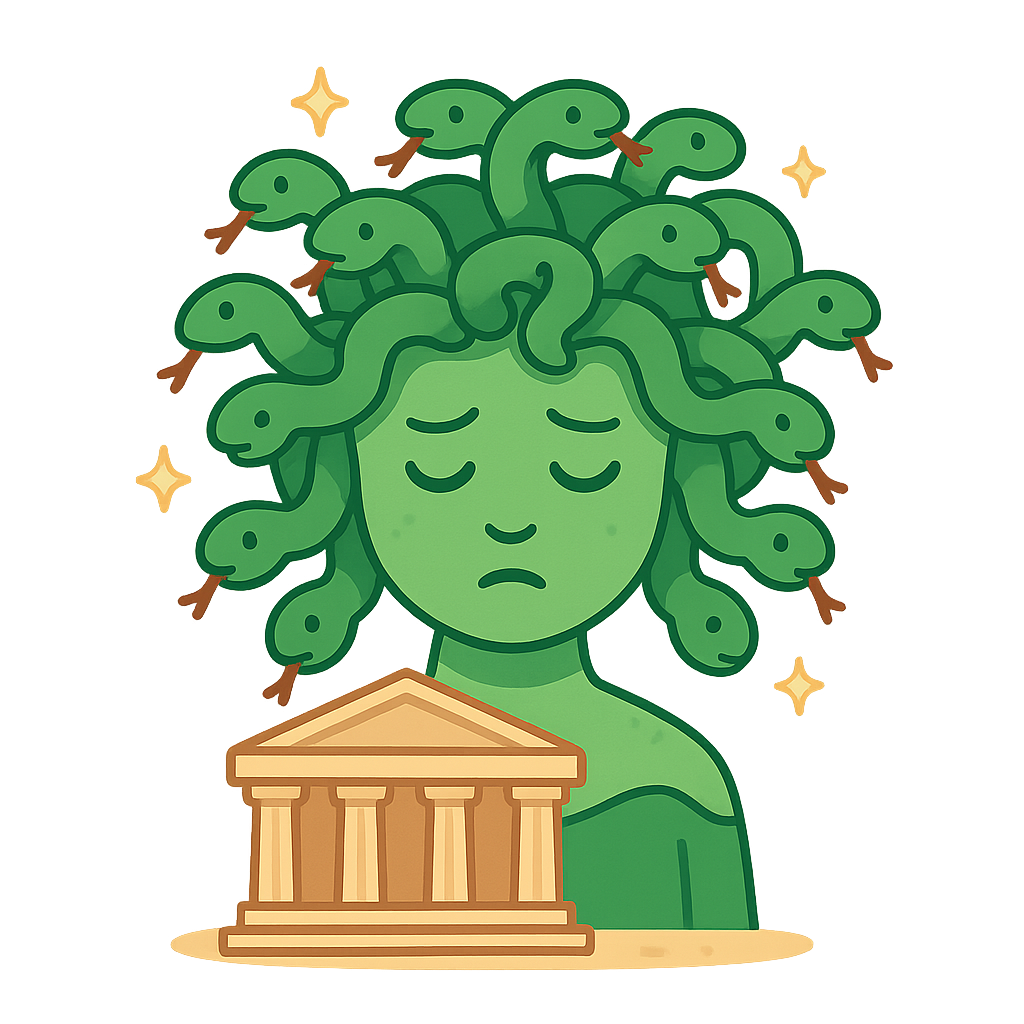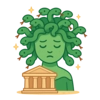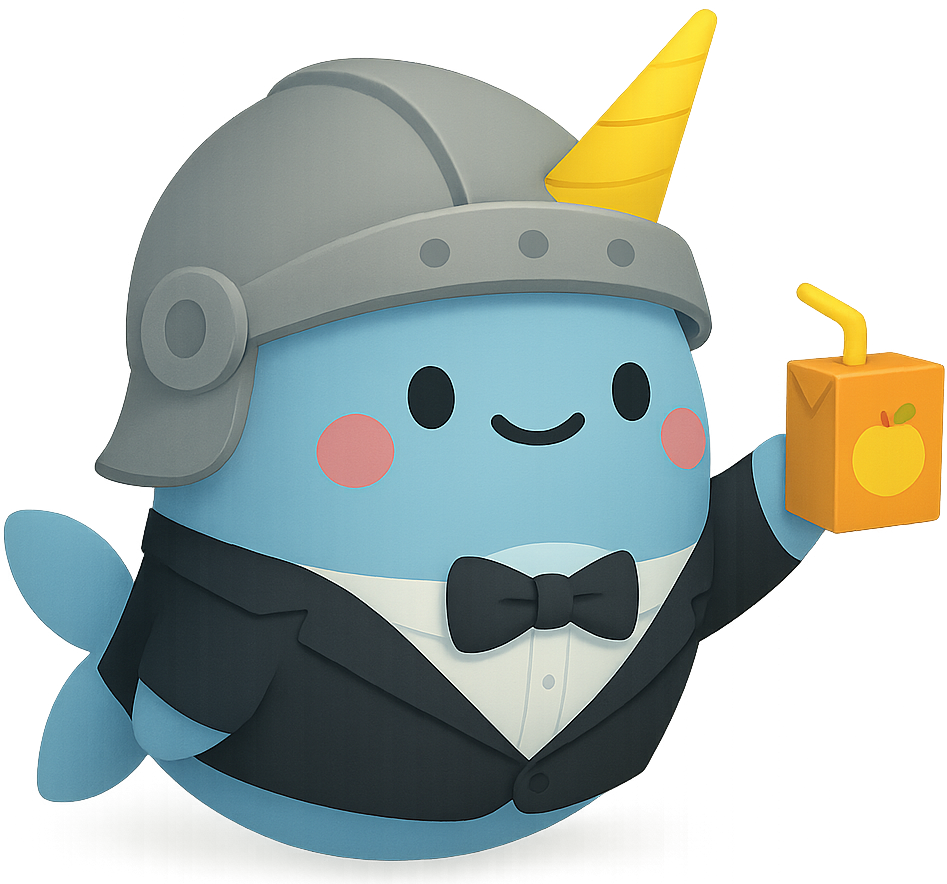The Myth of Medusa
You may have heard whispers of my name, spoken in hushed tones around a crackling fire, a name used to describe a monster. But I am Medusa, and my story began not with a curse, but with sunlight warming the marble floors of a beautiful temple. Long ago, in the land of ancient Greece, I was a young woman with hair that shimmered like polished obsidian, and I served as a priestess in the grand temple of Athena, the goddess of wisdom. My days were filled with purpose and tranquility. I would sweep the cool stone floors, polish the golden statues, and light the sacred incense that curled towards the heavens, carrying our prayers. I dedicated my life to her, finding peace in the quiet reverence of the sanctuary. My devotion was pure, and my heart was content. But my devotion and my beauty, which many people complimented, drew the attention of others. It was not attention I ever wanted. The powerful sea god, Poseidon, with eyes as stormy as the oceans he commanded, began to notice me. His interest was not a gentle admiration but a possessive, relentless gaze that followed me through the hallowed halls of the temple. I tried to ignore it, to focus on my duties, but a shadow of dread began to fall over my peaceful existence. I prayed to Athena for protection, but the heavens felt silent. Poseidon’s interest would change my fate forever, twisting it into a tragic tale that would be misunderstood for centuries. This is the story of how my life was stolen and transformed, the true myth of Medusa.
My worst fears were realized on a day that began like any other. I was arranging offerings at the altar when Poseidon appeared, his presence filling the sacred space with the scent of salt and the chilling power of the deep sea. He pursued me, and in my terror, I ran to the foot of Athena's great statue, believing that surely, on her own holy ground, I would be safe. I was wrong. What happened next was a blur of fear and injustice. When it was over, Athena finally appeared, but her eyes blazed not with sympathy for my plight, but with a furious, misplaced rage. She saw his transgression in her temple as my fault. "You have defiled my sacred space!" she shrieked, her voice echoing off the marble walls. I tried to speak, to explain, but she would not listen. In her fit of divine jealousy, she did not punish the god who had wronged me, but instead turned her vengeful fury upon me, her most loyal priestess. A searing pain shot through my scalp as she laid her curse upon me. My beautiful hair, once my pride, writhed and thickened, twisting into a hissing nest of venomous snakes. My skin turned a ghastly, scaly green, and my face contorted into a mask of horror. Worst of all, she cursed my eyes. Any living creature that met my gaze would be frozen in time, their life extinguished as they turned instantly to cold, hard stone. Heartbroken and terrified, I was banished to a remote island at the edge of the world, a lonely, desolate place where only my two immortal Gorgon sisters, Stheno and Euryale, could bear to look upon me without turning to stone. For years, I lived in sorrowful exile, my heart aching for the life I had lost. My island became a grim garden of statues—unfortunate sailors and adventurers who had stumbled upon my lair, their faces forever locked in expressions of shock. I did not seek them out; I only wished to be left alone, but my curse was a weapon I could not control. My name became a warning, a tale told to frighten children and sailors, the story of a monster.
Eventually, the whispers of my monstrous existence reached the ears of a young man they called a hero. His name was Perseus, and a cruel king had sent him on an impossible quest: to bring back my head. But Perseus did not come alone; he was guided and armed by the very gods who had orchestrated my doom. Athena, my former patron, gave him a polished bronze shield, as reflective as a mirror. The messenger god, Hermes, gave him a sword forged by the Cyclopes, sharp enough to cut through any material. He arrived on my island moving like a ghost, his winged sandals making no sound on the rocky shore. I sensed his presence, the familiar intrusion of yet another person who saw me only as a monster to be conquered, a prize to be won. He found my cave while I was asleep, exhausted from the weight of my grief and my serpentine crown. Using the reflection in his shield to see me without looking directly into my cursed eyes, Perseus crept closer. I never had a chance to defend myself, to tell my story. In a single, swift moment, my tragic life was ended. But even in death, my story was not over. My power could not be so easily erased. From my blood sprang two incredible beings: the beautiful winged horse, Pegasus, who soared into the sky, a symbol of freedom I never knew, and the giant Chrysaor, who wielded a golden sword. My head, its power still potent, was used by Perseus as a weapon to defeat his enemies before he finally presented it to Athena. She, in a final act of cruel irony, placed my face upon her shield, the Aegis, as a symbol of her protective power. My story teaches us that heroes and monsters are not always what they seem, and that there are often multiple sides to every tale. My image continues to fascinate people today, appearing in art, books, and movies not just as a monster, but as a symbol of power, tragedy, and a beauty that was once wronged. My story reminds us to look beyond the surface and question the tales we are told, sparking our imagination to see the humanity in even the most feared figures of myth.
Reading Comprehension Questions
Click to see answer


